The second week of public hearings in the impeachment inquiry into President Donald Trump began Tuesday with testimony from four current and former Trump Administration officials.
Throughout nearly 11 hours of combined testimony, each of the witnesses described their efforts to follow proper procedures within their respective positions, while simultaneously offering a glimpse into the President’s fraught foreign policy with Ukraine.
Lt. Col. Alexander Vindman, the top Ukraine expert on the National Security Council, and Jennifer Williams, special advisor for Europe and Russia for Vice President Mike Pence, were first to answer questions in front of the House Intelligence Committee. Both reiterated their written testimony, in which they describe their significant concerns with President Trump’s July 25 conversation with newly-elected Ukrainian President Volodymyr Zelensky.
Williams, who said she had listened to a dozen calls with foreign leaders, described the July 25 call as “unusual and inappropriate,” while Vindman described being taken aback. “It was probably an element of shock,” he told investigators. “That maybe, in certain regards, my worst fear of how our Ukraine policy could play out was playing out, and how this was likely to have significant implications for U.S. national security.” He quickly reported his concerns about the call to his superior, National Security Council Lawyer John Eisenberg. “My only thought was to act properly and to carry out duty,” Vindman said.
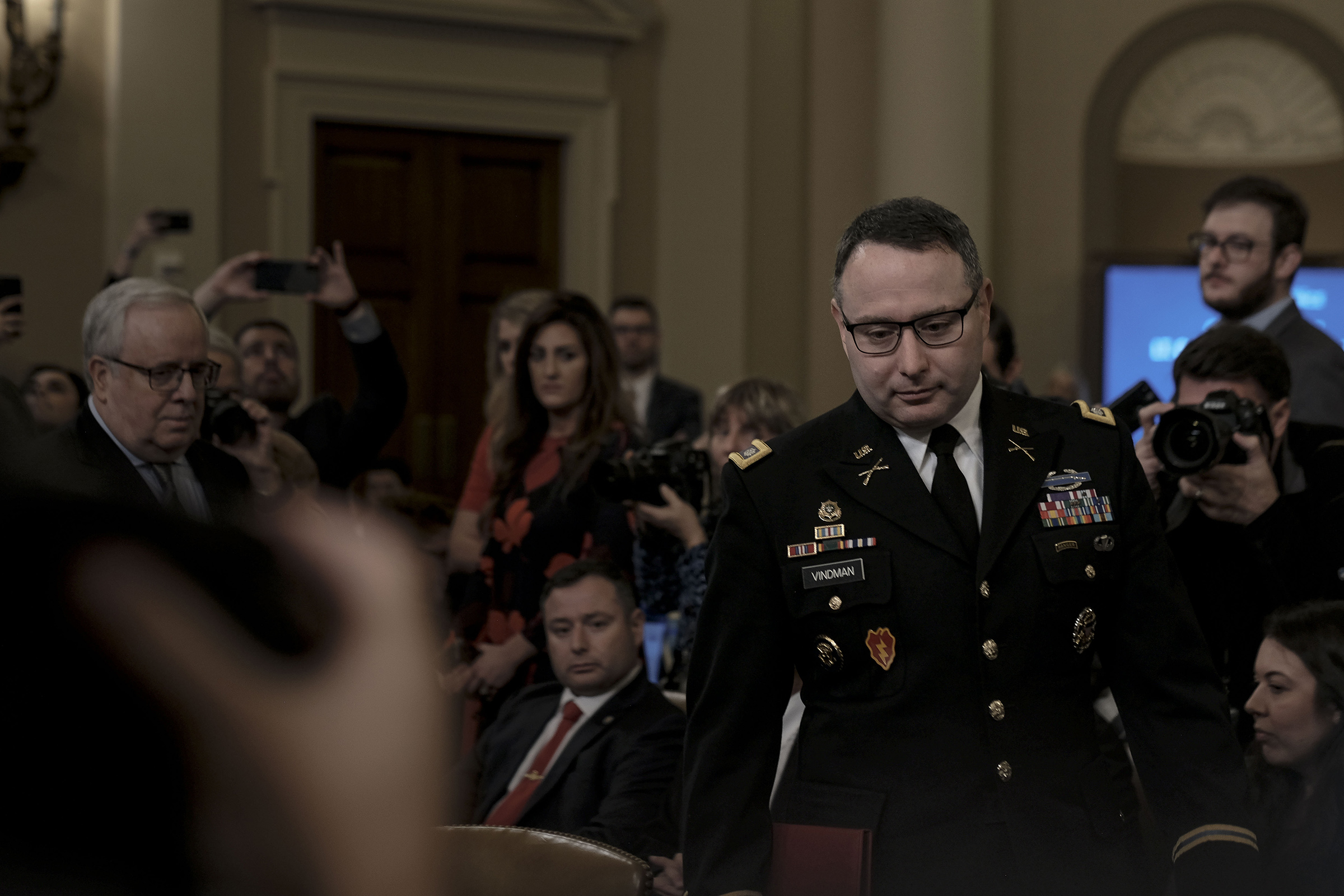
Born in Ukraine when it was still part of the former Soviet Union, Vindman immigrated to the U.S. as a child and served in the U.S. Army’s infantry branch for more than 20 years. He earned a purple heart after he was wounded in Iraq. In his testimony, he explained that he was willing to testify against the President “because this is America… here, right matters.” But Vindman also spent a portion of his appearance before the committee warding off concerns implied by GOP counsel Steve Castor that he had loyalties outside of the U.S. In response to Castor’s questions about Ukrainian officials offering Vindman a role as the nation’s defense minister, Vindman said: “I’m an American… and I immediately dismissed these offers.”
Tim Morrison, the former NSC official overseeing Russia and Europe policy, and Kurt Volker, the former U.S. Special Representative to Ukraine, appeared before the committee later on Tuesday. Both witnesses helped shape the Trump’s Administration’s policy towards Ukraine, and both witnesses were requested to appear by Republicans.
In his prepared remarks, Volker updated the testimony he previously provided behind closed doors. “I have learned many things that I did not know at the time of the events in question,” he said. He repeated the assertion he had made in his closed-door testimony that he opposed the U.S. withholding aid money as soon as he learned about it, but he also clarified on Tuesday that he hadn’t previously understood that Burisma — the Ukrainian energy holding company on which Hunter Biden sat on the board — and mentions of the Biden family in general, were thematically the same.
“In hindsight, I now understand that others saw the idea of investigating possible corruption involving the Ukrainian company, ‘Burisma,’ as equivalent to investigating former Vice President Biden,” he said.
Morrison seemed to downplay his involvement in “parallel” channels of foreign policy work on numerous occasions. At one point, he testified that he “kept track of” U.S. Ambassador to the European Union Gordon Sondland’s directions, but didn’t always agree or comply with them. “I decided to keep track of what Ambassador Sondland was doing. I didn’t always act on things Gordon suggested, that he believed were important,” Morrison said. On another occasion, Morrison maintained he didn’t know what Burisma was and had to “Google it.”
The White House meanwhile disparaged the hearings as “illegitimate” and asserted the witnesses’ testimonies proved Trump hadn’t done anything wrong. “We have learned nothing new in today’s illegitimate ‘impeachment’ proceedings. However, buried among the witnesses’ opinions and conjecture about a call the White House long ago released to the public, both witnesses testified the July 25 transcript was ‘accurate’ and nothing President Trump has done or said amounts to ‘bribery’ or any other crime,” White House press secretary Stephanie Grisham said in a statement to reporters.
Sondland is scheduled to testify Wednesday morning in what may be the most damaging testimony for the President. In early November, Sondland offered significant revisions to his October testimony, telling investigators that he personally relayed the message to a Ukrainian official “that resumption of U.S. aid would likely not occur until Ukraine provided the public anti-corruption statement that we had been discussing for many weeks.” Sondland had initially testified that he did not know about plans to hold up aid in exchange for Ukraine pursuing the investigations.
On Wednesday afternoon, Deputy Assistant Secretary of Defense Laura Cooper and Undersecretary of State for Political Affairs David Hale are expected to testify about the freezing of military aide and the irregular removal of former U.S. Ambassador to Ukraine Marie Yovanovitch, who testified last Friday.
Below are some of the key moments from the marathon hearings.
‘I googled it’
While the Democratic counsel was asking Morrison about the “parallel process” that his predecessor, Fiona Hill, had warned him about, Morrison asserted that he wasn’t familiar with energy company Burisma Holdings — the Ukrainian company on which Hunter Biden served on the board. Morrison said that he concurrently learned of traditional NSC processes and the parallel one that “included issues like Burisma,” which he says were noteworthy to him at the time, “because [he] had never heard of them.”
After than transition meeting, Morrison says he “looked [Burisma] up on the internet; I googled it.” As the former top Russia and Europe staffer on the NSC, it is interesting that Morrison says he did not know of Burisma, given that Russia has been engaged in an armed conflict with Ukraine since 2014.
Volker: ‘I should have seen that connection differently’
Amid nine written pages worth of opening remarks, Volker testified that he did not knowingly partake in efforts to get Ukraine to investigate former Vice President Joe Biden and that he was not aware of references to Biden or his son Hunter by President Trump until the transcript was released.
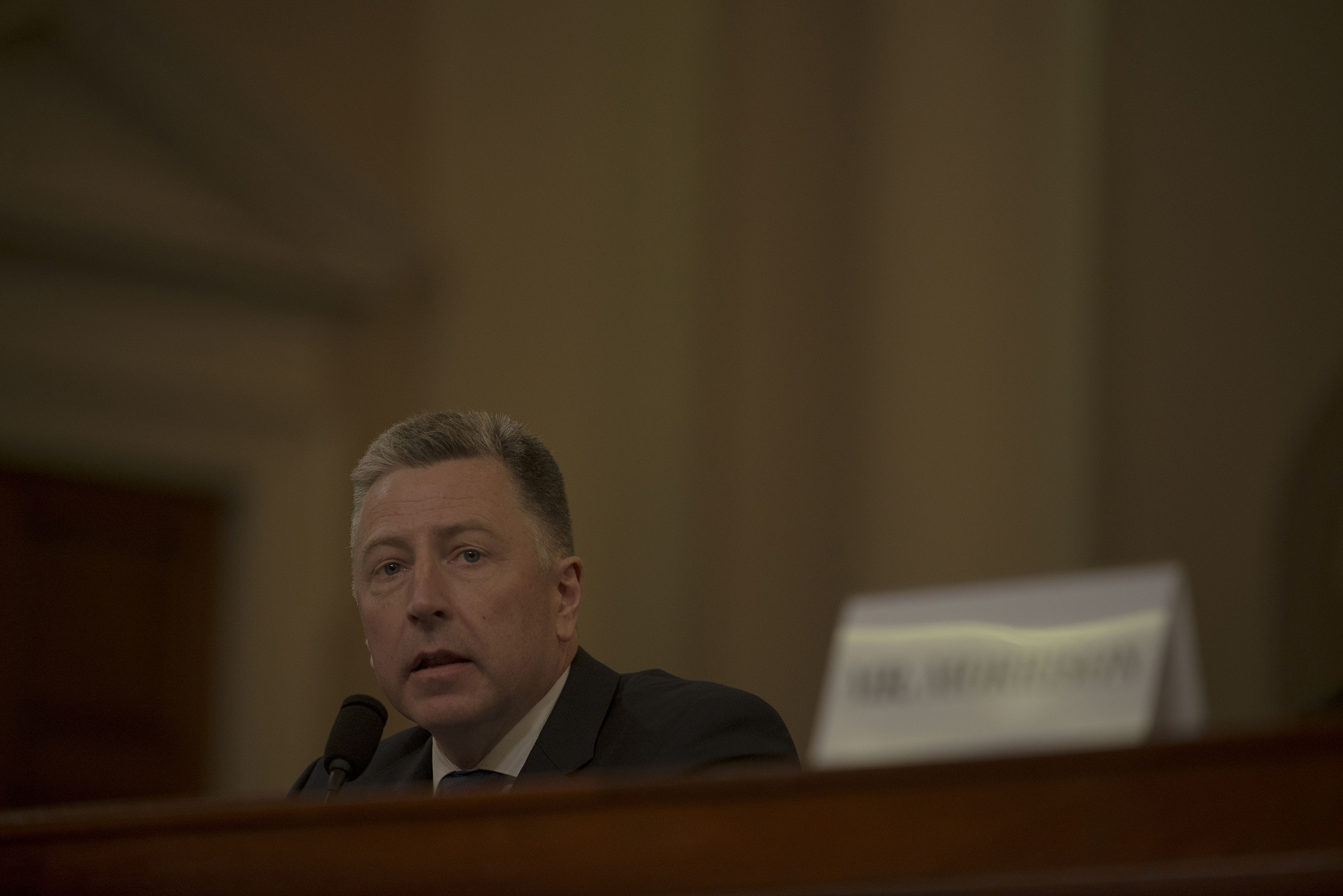
However, Volker also asserted for the first time that he didn’t originally understand “Burisma” and references to Biden to be synonymous.
“I did not know that President Trump or others had raised Vice President Biden with the Ukrainians, or had conflated the investigation of possible Ukrainian corruption, with investigation of the former Vice President,” said Volker.
In hindsight, Volker says, he now sees the two as thematically equivalent. “I now understand that others saw the idea of investigating possible corruption involving the Ukrainian company, ‘Burisma,’ as equivalent to investigating former Vice President Biden. I saw them as very different — the former being appropriate and unremarkable, the latter being unacceptable. In retrospect, I should have seen that connection differently, and had I done so, I would have raised my own objections.”
‘A Russian narrative’
Vindman said that Trump’s claims that Ukraine interfered in the 2016 election, which he had pressed Zelensky to investigate, was a theory being pushed by Russia.
“This is a Russian narrative that President Putin has promoted,” he told lawmakers, referring to the widely discredited conspiracy theory that it was Ukraine, not Russia, that interfered in the 2016 election. In the July 25 phone call, Trump asked Zelensky to look into those claims, which had also been promoted by his personal lawyer Rudy Giuliani.
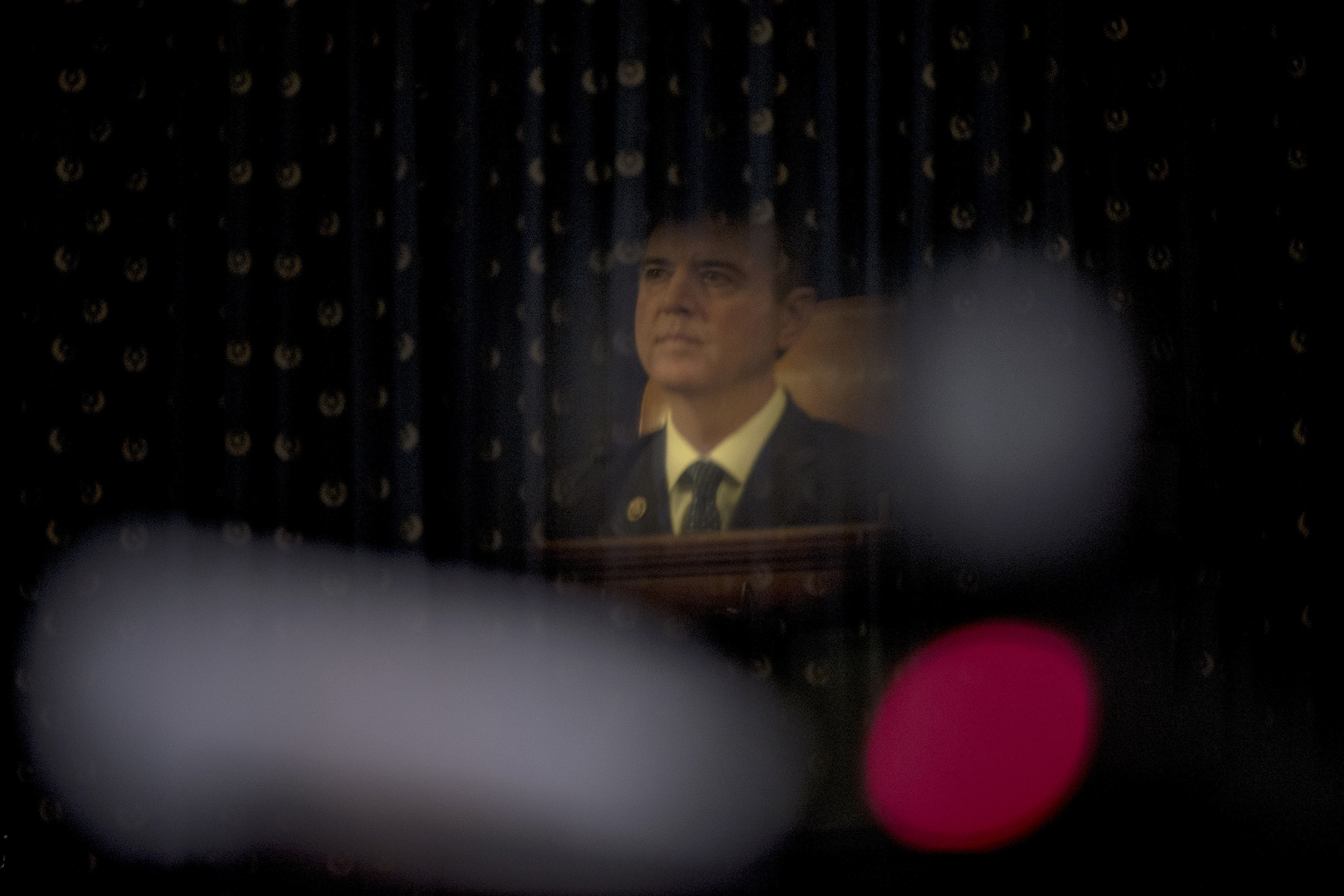
On Tuesday, TIME reported that three pro-Russia lawmakers in Ukraine have echoed Trump’s calls for the investigation into Ukrainian collusion in 2016, seeming to back up Vindman’s statement.
‘Out of the course of normal affairs’
Rep. Jackie Speier, a California Democrat, asked the Williams and Vindman whether they had been treated differently since depositions were announced and subsequently made public. Although Williams said she had not noticed a change in her workplace duties or treatment, Vindman said he noticed he was “being excluded from several meetings that would have been appropriate for my position.”
When Speier pressed whether Vindman saw this trend as a “reprisal,” the military officer said he was wasn’t in the position to characterize whether the depositions played a role, but that it was “out of the course of normal affairs to not have me participate in some of these events.”
‘I’d call myself never partisan’
Over the weekend, Trump attempted to discredit Williams and Vindman ahead of their testimonies. “Tell Jennifer Williams, whoever that is, to read BOTH transcripts of the presidential calls, & see the just released statement from Ukraine,” the President tweeted. “Then she should meet with the other Never Trumpers, who I don’t know & mostly never even heard of, & work out a better presidential attack!” he tweeted.
Rep. Jim Himes, a Connecticut Democrat, asked Williams whether she classified herself in such a category. Williams replied that she was “not sure [she knew] an official definition of a ‘Never Trumper,’” but wouldn’t describe herself as one. When Himes asked Vindman whether he would characterize himself as a ‘Never Trumper,’ Vindman replied: “Representative, I’d call myself never partisan.” He subsequently asserted that he had no political motivations that compelled him to comply with the hearing.
Vindman says ‘Burisma’ left off July 25 memo — but edit wasn’t ‘nefarious’
Vindman had previously told lawmakers in closed door testimony that he made suggested edits to the memorandum of Trump’s July 25 call with Zelensky that was ultimately released to the public: that they should include the name of Burisma, the gas company that employed Joe Biden’s son Hunter Biden as a board member, and Trump claiming there are recordings of Biden discussing corruption in Ukraine.
Vindman said in his public testimony Tuesday that both of those components were left out of the memorandum, but that he did not think that was “nefarious.” He also said that the decision to move the call to a secure server was not “unprecedented,” and was done in part to avoid leaks to the media. Both of these admissions are likely to bolster Republicans’ argument that the White House never intended to cover up the phone call.
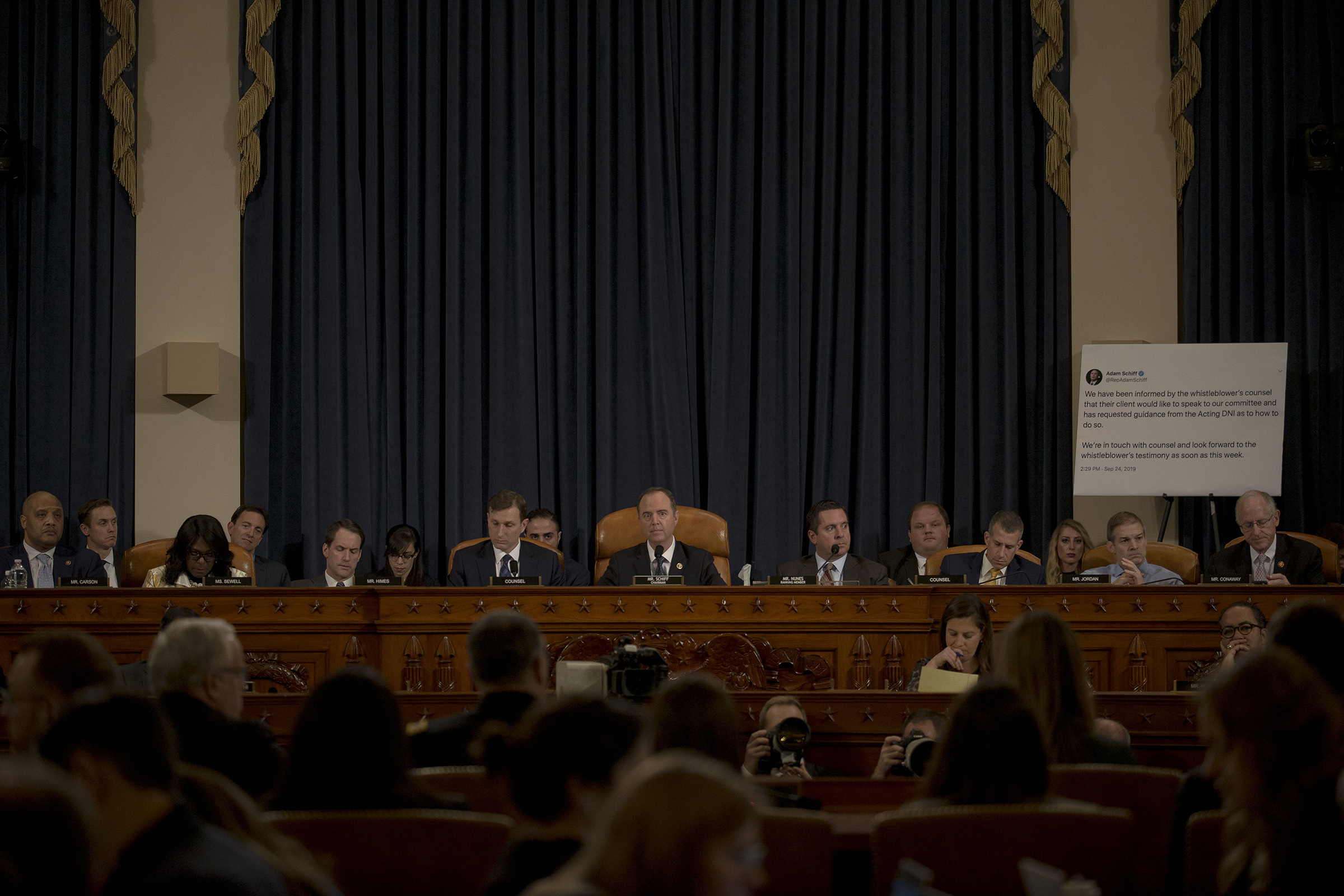
Vindman testifies about “a sense of duty”
Vindman, an active duty military officer who has served multiple tours overseas and was wounded in Iraq, captured the attention of the hearing room when he delivered his evocative open remarks Tuesday morning. Vindman said that he reported his concerns about the July 10 meeting where Sondland allegedly spoke about the requirement for Ukraine to deliver investigations to secure a meeting with Trump, and about the July 25 call “out of a sense of duty.” Vindman said that he privately reported these concerns in official channels “because they had significant national security implications for our country.”
After filing reports about his concerns, Vindman says he immediately returned to work to “advance the country’s foreign policy objectives.”
He made it clear that Tuesday’s hearing was not a setting he is accustomed to nor a process he set out to engage in. “As a young man I decided that I wanted to spend my life serving the nation that gave my family refuge from authoritarian oppression, and for the last twenty years it has been an honor to represent and protect this great country,” Vindman said, noting next month marks 40 years since his family arrived to the United States as refugees.
Williams: ‘I found the July 25 call unusual’
A career foreign service officer who served stints under both Presidents George W. Bush and Barack Obama in places such as Jamaica, Beirut and Syria, Williams testified that the now-infamous July 25 call was “unusual” in that it “involved discussion of what appeared to be a domestic political matter.”
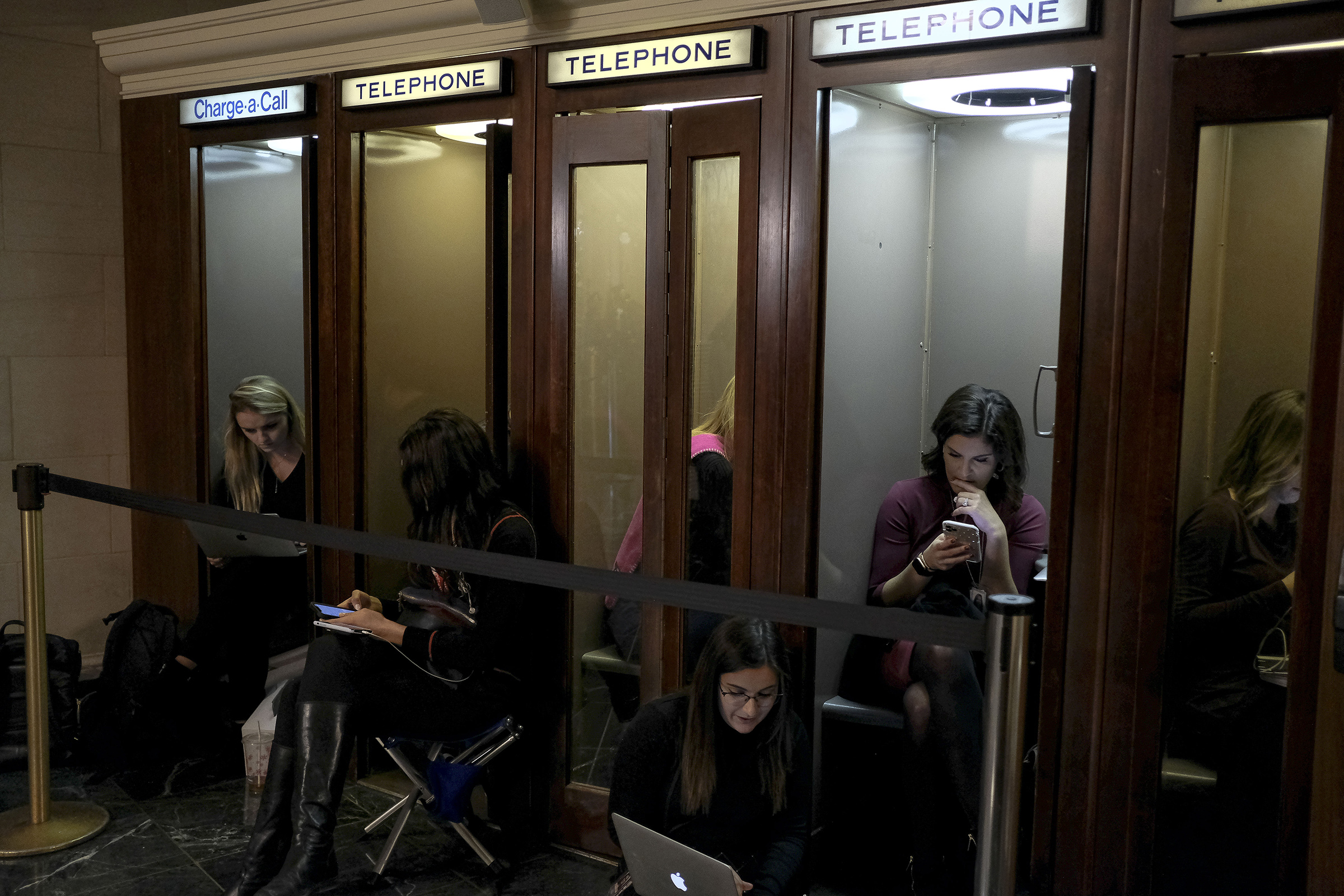
Williams said she attended meetings where the hold on Ukraine’s security assistance was discussed, and that while State and Defense Department advocated for the release of the aid money, employees from the Office of Management and Budget asserted that White House Chief of Staff Mick Mulvaney directed the hold on the funds remain in place. A couple weeks after the call, Williams learned the aid money was released — though she “never learned what prompted that decision.”
Williams said that she had participated in over a dozen calls with foreign leaders, but found this one unusual because Trump was asking Zelensky to investigate a domestic matter.
More Must-Reads from TIME
- Caitlin Clark Is TIME's 2024 Athlete of the Year
- Where Trump 2.0 Will Differ From 1.0
- Is Intermittent Fasting Good or Bad for You?
- The 100 Must-Read Books of 2024
- Column: If Optimism Feels Ridiculous Now, Try Hope
- The Future of Climate Action Is Trade Policy
- FX’s Say Nothing Is the Must-Watch Political Thriller of 2024
- Merle Bombardieri Is Helping People Make the Baby Decision
Write to Abby Vesoulis at abby.vesoulis@time.com, Vera Bergengruen at vera.bergengruen@time.com and Alana Abramson at Alana.Abramson@time.com